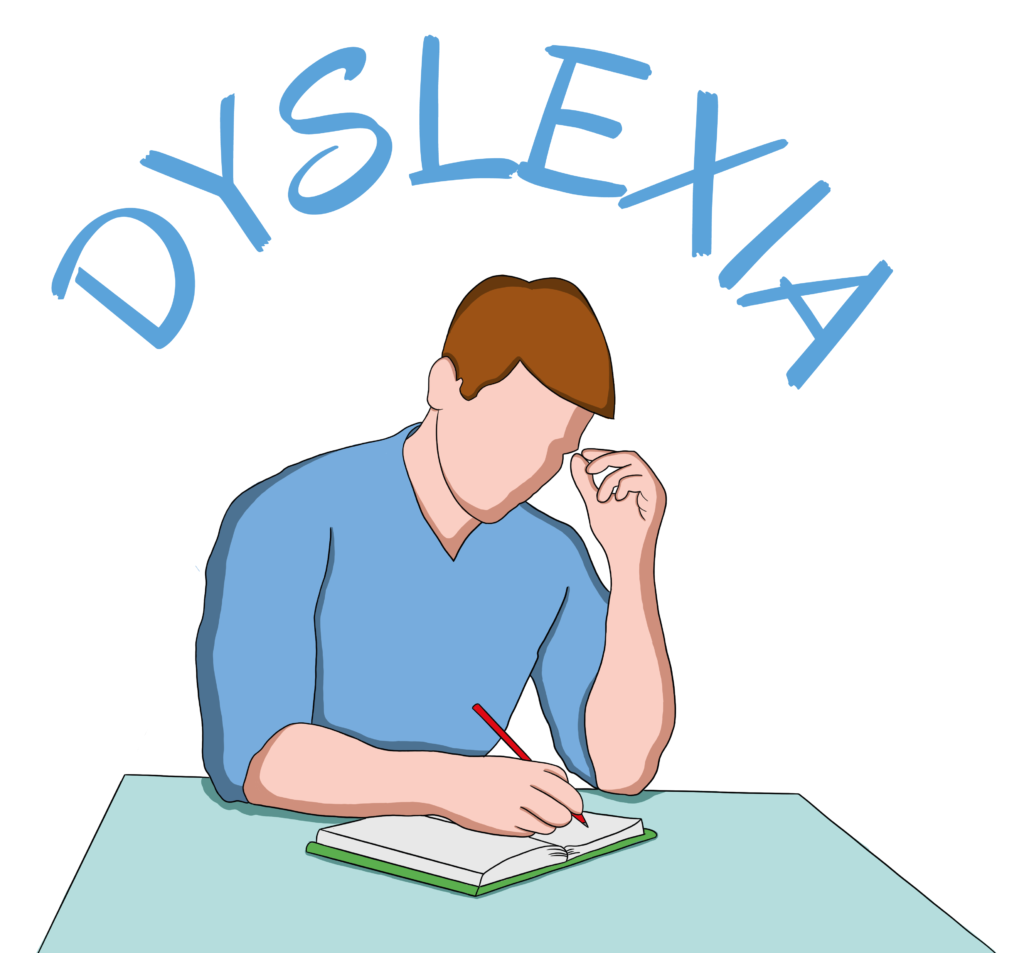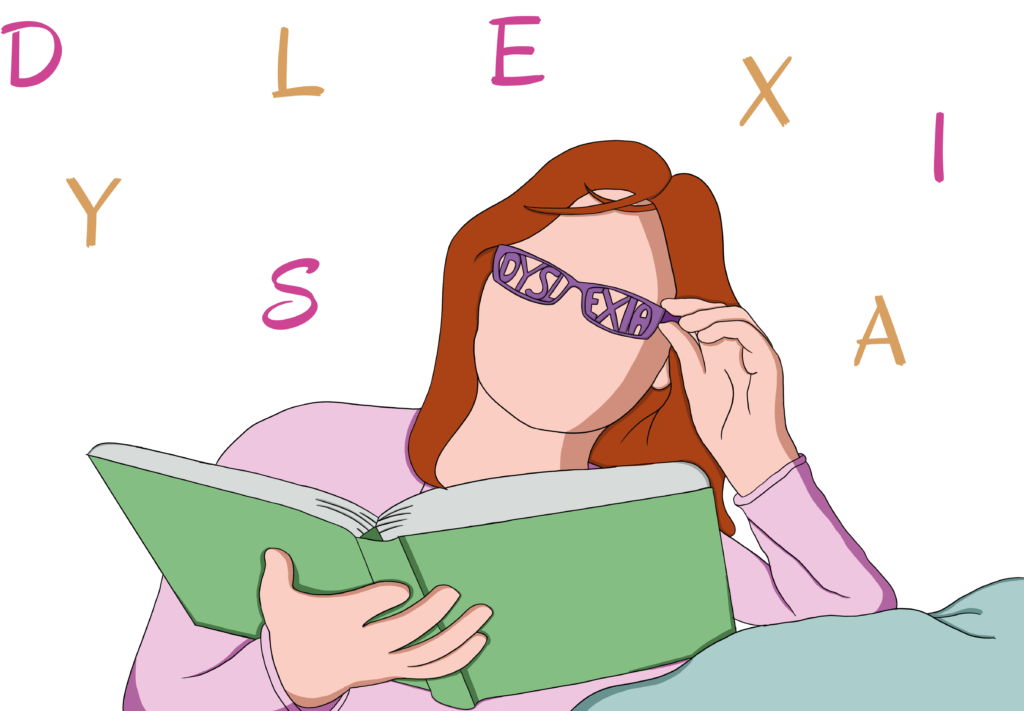What is dyslexia?
Dyslexia is a learning disability that affects how the brain processes information. This can cause difficulty with things such as speech, reading, and writing. People who have dyslexia generally take longer to read and write than those without. Those who suffer with dyslexia have it all their life. Most people are diagnosed with dyslexia around 5-6 years of age. Once they start learning to read and write.

Signs and symptoms of dyslexia?
Those that suffer from dyslexia start to show signs and symptoms from young. Signs and symptoms may include:
- Reading and writing slowly
- Confusing the letters in words
- Putting incorrect letters in words (using q instead of p)
- Having poor spelling
- Finding it difficult to understand information when written down but able to understand it when spoken
- Struggling with planning.
Dyslexia is a lifelong learning disability that will affect daily life. The symptoms will not disappear, as the learning disability will always be with a person. Dyslexic people can have extra support both in child and adulthood.
How does dyslexia affect daily life?
Dyslexia affects your speech, reading and writing skills. Children may find it difficult to copy written down patterns. this will affect writing skills throughout most of a person’s life. Those will also have their reading skills affected, because your brain struggles to process the letters and words you read a lot slower. Dyslexic children also suffer with speech because their brain is attempting to remember the way words and letters are pronounced. As a child has help learning letters, they grow to remember how words sound and become familiar with how letters sound. Remembering how letters sound helps as a child develop towards adulthood. Unlike most learning disabilities, dyslexia doesn’t affect your intelligence. You can be highly intelligent and suffer from dyslexia.
Getting diagnosed.
If you think your child, or you may have dyslexia, it is best to speak to a local GP. An assessment for dyslexia may be a series of tests. These tests will assess how your child writes, the vocabulary they use in their writing. The speed they can process audio and visual information. You will receive the outcome after, usually through the post or over the phone. The outcome will also include steps of how to help with the diagnosis, normally this will include sessions with the SENCO teacher. A SENCO teacher specialises in children’s learning disabilities.
Support for people with dyslexia.
There is support for both children and adults with dyslexia. Children with dyslexia have support from schools and SENCO teachers. 1-1 teaching and smaller groups are proven to help children by learning phonics. Phonics is a way to teach children letters as sounds and how to pronounce letters and words.
Adults with dyslexia also have support. Specialist technology with speech recognition can help adults with dyslexia. Saying instructions is a simple way of adjusting the workplace. Managers can allow extra time for tasks that are difficult to a person who suffers with dyslexia. As technology is always progressing, there could be new opportunities for technology to help people with learning disabilities.
Is there a cause for dyslexia?
It is still unknown if there is a cause for dyslexia, but there are risk factors. Family history can play a part in if you develop dyslexia. Most factors that pay a part in the chances of getting dyslexia are from before birth. When a woman is pregnant, things that happen during pregnancy can impact the chances of having dyslexia. Exposure to drugs like nicotine, alcohol, and being born prematurely can also increase the chances of developing dyslexia.
How can dyslexia affect your mental health?
Dyslexia can affect the mental health of both children and adults. Adults’ mental health will stem from childhood trauma of being a young person with dyslexia. Children with dyslexia become frustrated as they attempt to hide their struggles, this can cause them to develop anxiety and poor self-esteem. This can continue into adult life. Poor self-esteem is when a person thinks low of themselves, this can lead to anxiety. Being distressed by an event causes anxiety. People with dyslexia may feel dread when having to read out loud or speak to others. A low self-image of the future can also scare children into thinking that it may not be as happy as they originally thought. Children may believe that they cannot progress in the future as they wanted to and find dyslexia as a setback.
Children can also develop anger issues. Bullying is the reason for anger in children with dyslexia, this will make a child upset because of the thoughts of feeling different. People may still be treated unfairly in adulthood this causes anger to continue. Adults can form phobias due to dyslexia, a phobia of reading out loud is likely, because of the lack of understanding words and letters in sentences. Sometimes adults go through their childhood without a diagnosis. This was common decades ago, as scientist didn’t know as much information back then.

Does mental health start from childhood?
Most people with mental health as adults have habits formed from a younger age. Pro-longed self-questioning in childhood can cause an adult to develop a hatred towards the world. Even thoughts of suicide. There IS NO link between dyslexia and suicide, but dyslexic people can develop depression, this can cause suicidal thoughts. For people suffering with dyslexia and mental health seeking help is advised. Your local GP will refer you to see a psychologist. A psychologist is a mental health professional who understands the way your emotions work and the limbic system. The limbic system is a part of your brain that works our emotions and behaviour.



